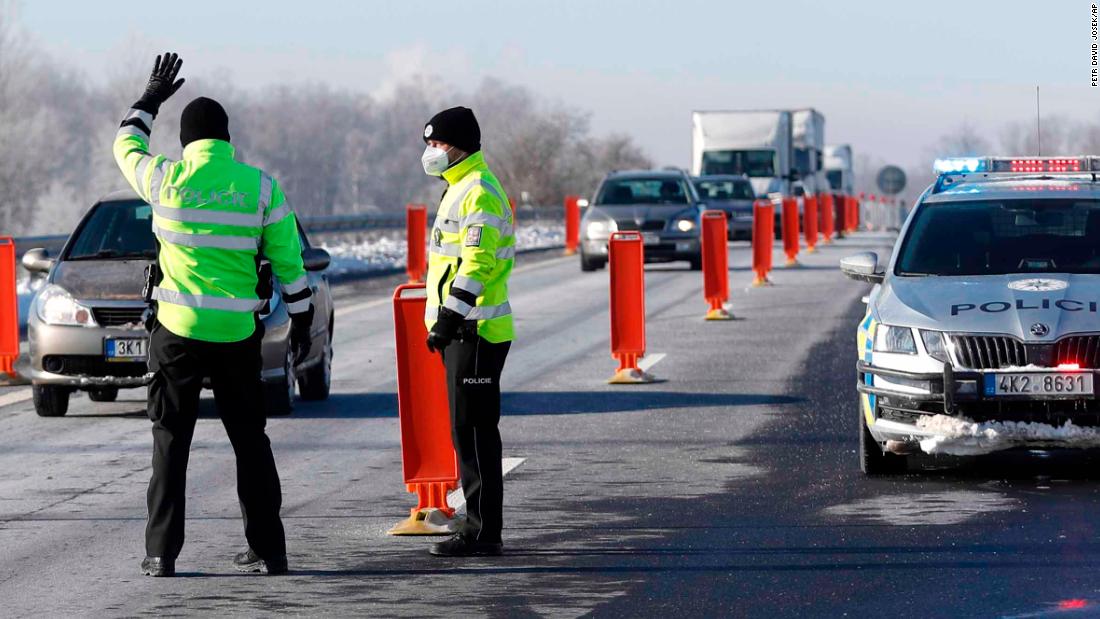
“To protect the population from virus mutations – that’s why the federal government decided yesterday to declare the Czech Republic, Tyrol and Slovakia coronavirus variants,” Spahn said at a news conference on Friday.
“This means that there will be a transport ban – and without exception tests must be done before entering Germany – and there is a quarantine obligation.”
Despite the new, more contagious variants, cases of coronavirus have recently declined in Germany. On Friday, the country registered 9,860 new infections – a decrease of 3,048 cases compared to the same day last week. Austria and the Czech Republic have not seen a similar drop in the number of cases.
In an effort to stem the spread of the variant, local authorities deployed 1,200 police officers and soldiers. They start at midnight on Friday and last for 10 days. They will be deployed at Tyrolean border controls to ensure that anyone trying to leave the province gets a negative coronavirus test no older than 48 hours, Tyrolean police spokesman Stefan Eder told CNN.
Children, freight traffic and travelers traveling through Tyrol are exempt from the rule.
Meanwhile, the parliament in the Czech Republic refused to extend the state of emergency on Thursday. As a result, many of the country’s coronavirus restrictions are automatically lifted on Sunday when the current state of emergency ends, despite the virus continuing to spread rapidly across the country.
Czech Health Minister Jan Blatny warned that any relaxation of restrictions on this point would lead to the health system running out of capacity. This is already happening in some hospitals in the westernmost Karlovarsky region of the country.
The decision was the result of a deep political row between the minority government, led by populist Prime Minister Andrej Babiš, and the opposition, who accused Babiš of not doing enough to contain the virus.
The opposition argued, among other things, that the lack of government financial support for individuals and companies affected by the pandemic means that people are not following the rules and are skipping quarantines because they cannot afford to lose their income.
When Babiš refused to accept their proposals, the opposition voted against an extension of the state of emergency. The country is holding important parliamentary elections later this year.
Nadine Schmidt and Claudia Otto reported from Berlin. Ivana Kottasová reported and wrote from London.